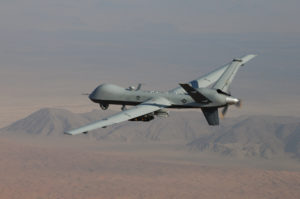 It’s commonplace now to note that China is a surveillance state.
It’s commonplace now to note that China is a surveillance state.
But most other countries–including the UK and the US–are on their way. Cameras proliferate everywhere, virtually everyone carries a phone which is tracked constantly (and 5G networks will be so precise they can tell which room of a building you are in), and audio surveillance is increasingly being added. (That much of this surveillance is private, rather than government, changes little.)
AI + various recognition algos (face, gait, etc…) and cheap long term storage means that, increasingly, it is possible to know where people were, when, and store that information for years. Cameras and phones and other devices which listen in, plus access to all chat, phone, email, and other messaging means we know what they were doing and saying.
1984 was nothing on this. Big Brother couldn’t store information (no video tape even) and someone had to actually be watching the camera and listening in when you did something The Powers That Be didn’t like. If no one was watching, you got away with it.
The endgame, as I’ve been pointing out for years, is a society in which where you are and what you’re doing, and have done is, always known, or at least knowable. And that information is known forever, so the moment someone with power wants to take you out, they can go back through your life in minute detail. If laws or norms change so that what was okay ten or 30 years ago isn’t okay now, well, they can get you on that.
Surveillance societies are sterile societies. Everyone does what they’re supposed to do all the time, and because we become what we do, it affects our personalities. It particularly affects our creativity, and is a large part of why Communist surveillance societies were less creative than the West, particularly as their police states ramped up.
Surveillance societies also just suck to live in: paranoia, fear, little freedom.
So why create them? I mean in one sense the answer is obvious: Surveillance is control, and powerful people always want small people under their thumb, and small people can be sold on arguments like, “This stops crime!” and “Oh, think of the children!”
(I am fundraising to determine how much I’ll write this year. If you value my writing and want more of it, please consider donating.)
But there are three specific reasons for this upsurge in the surveillance state beyond, “We can, so why not?”
The first is that elites have become very aware that modern military technology is mostly not in their favour. Iraqis fought the US to a standstill. The US military had to pay militias to let it leave. You don’t do that if you won. The Taliban is straight up winning in Afghanistan. The biggest and arguably the most expensive military in the world has lost to opponents who don’t have one percent of its budget. Israel lost to Hezbollah the last time it invaded Lebanon, and even lost the e-lint war.
The issue is that a big military like America’s can’t be defeated on the battlefield by rabble, but technologies of area denial (most notably IEDs) mean that large parts of any sizeable country can be made into no go zones. The state can’t rule them and neither can the militias really (because air power can be used to devastate them).
Meanwhile technologies like drones, and, I suspect, in the longer run, weaponized robots, are actually technologies that will be more useful to the weak than the strong. Bombers that cost a billion bucks and can only be made by huge firms or government organizations, and then require teams of specialists to run and maintain? Those are weapons of the strong.
But drones and weaponized robots and IEDs are or will be technologies that any competent mechanic/engineer will be able to make.
What is even scarier is that, as Bush and Obama made clear, drones are weapons of assassination. Like daggers and pistols in earlier eras, they make it possible to kill important people and are really hard to stop.
That will remain true as they disperse out to non-state actors, which is already happening.
They are also excellent weapons of sabotage. A few drones shut down Heathrow Airport, Britain’s most important airport, for days, without having to do anything beyond buzz about.
So, the technological soup to which we are coming makes assassination, sabotage, and area denial easy (as does cyber warfare). A single ransomware attack can shut down an entire bureaucracy, private or public.
The only way our elites can see to stop this is to know what everyone is doing all the time. Oh, there is one other way, but they are ideologically opposed to it.
The Rise of Inequality
The other way to stop people from sabotage, assassination, and insurgency is to make life good. People who are happy, expect the future to be better than the past, and have great social ties (love/friendship) don’t commit violence except when it is socially acceptable violence.
But this requires actually letting ordinary people have stuff: money and good futures. It means not treating them badly at work. It means sharing power (because there is no shared wealth without shared power over time). It also means, in an increasingly small world, actually giving developing country inhabitants decent lives–equality within and between societies.
If you are the richest rich in the history of the world, you sure don’t want to do that. Moreover, you are aware that you have so much, and that other people want it, and you are scared. Especially because you know serious disruptions to the social order will occur as climate change and ecological collapse worsen.
So, to keep your position, and save your lives when things go bad, you need a surveillance state. People have good reason to hate you, the smarter among you realize that, and know that only real, credible fear will stop them.
Remember, the surveillance state, combined with the technologies we’ve discussed, already means the state can easily kill and capture you. If they know where you are, who all your friends are, and everything you’ve done or do, it’s just a matter of visiting some violence on you, and they have plenty of violent capability. Finding you is the important part. The rest is easy.
A Grand Experiment in Cost
Traditional surveillance societies were expensive. The East German Stasi reputedly had one-third of its population spying on the other two-thirds. That’s ludicrous. It guts productivity, making the state poor. Combined with the creativity effects of surveillance societies, you will eventually lose to healthy, non-surveillance societies.
But what if you only had to pay a few percentage points of people to spy on the others, and, if necessary, kill or capture, the rest of the population. What if most of the work was done by AI, algos, and robots? Even better, this gets rid of the need to keep a large number of internal police and spies loyal, so you need a much smaller class of people to keep your surveillance state running.
But wait! It gets better! (Worse.) What if these new technologies mean that you don’t actually need peons? What if you can do the manufacturing, delivery, and service jobs all with combinations of AI and robots. Who needs workers? Just give the peons a guaranteed annual income large enough for them to buy your shitty goods and services, stick them in sub-par housing, and run the society mostly without them!
Oh sure, the same technology could be used to create a utopia (luxury-automated communism) but why do that? That would mean you wouldn’t be the richest, most powerful elite the world has ever known.
As members of the powerful elite, the problem of peons and minions revolting has always been the thorn in your bowl of cherries.
Finally, finally, technology offers a solution. A possibility of a permanent state where you never can, or will, lose your power.
Give it a little longer and make sure that you get access to the new gene-editing technologies (and the peons don’t), and you can even give yourself another permanent advantage by making yourself and your children actually, biologically superior to the hoi polloi.
The possibilities! The possibilities! If you can just hang on and get all of this into place, this could be the greatest age of aristocracy and autocracy the world has ever seen, and one that has no reason to ever end.
Ahhhhh.
It’s always good to be rich and powerful, but potentially this is the best era ever to be rich and powerful, with the best yet to come!

 It’s commonplace now to note that China is a surveillance state.
It’s commonplace now to note that China is a surveillance state. So, I imagine how everyone heard how drones shut down Gatwick airport, and the police and military were helpless?
So, I imagine how everyone heard how drones shut down Gatwick airport, and the police and military were helpless? For years, decades even, the US has had a policy of assassination. Americans believe that if you kill the leaders, you kill an organization.
For years, decades even, the US has had a policy of assassination. Americans believe that if you kill the leaders, you kill an organization.
